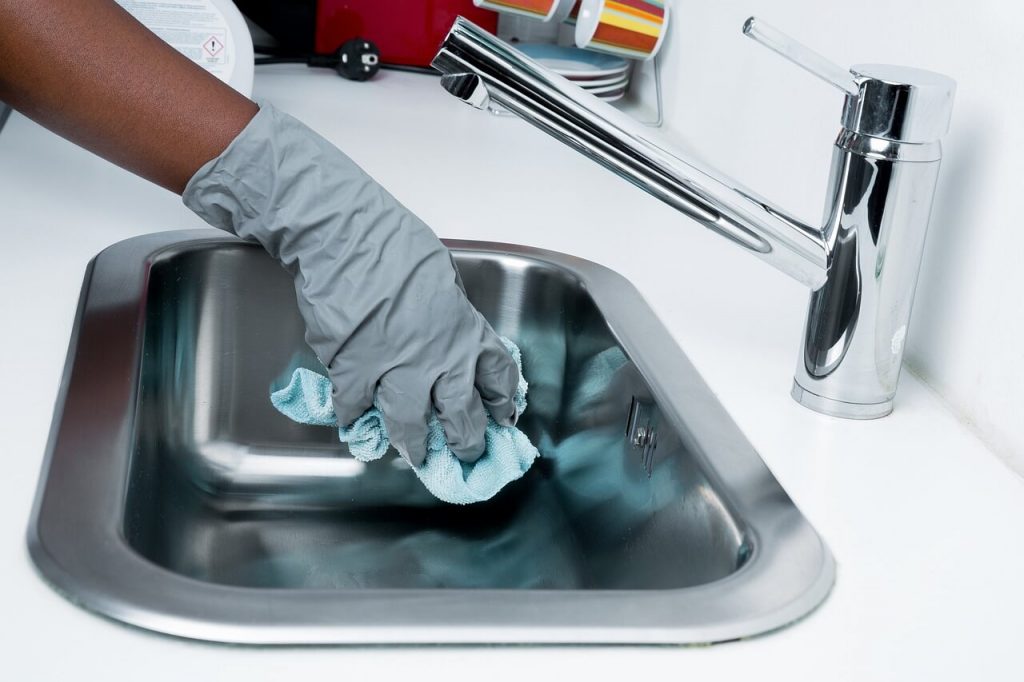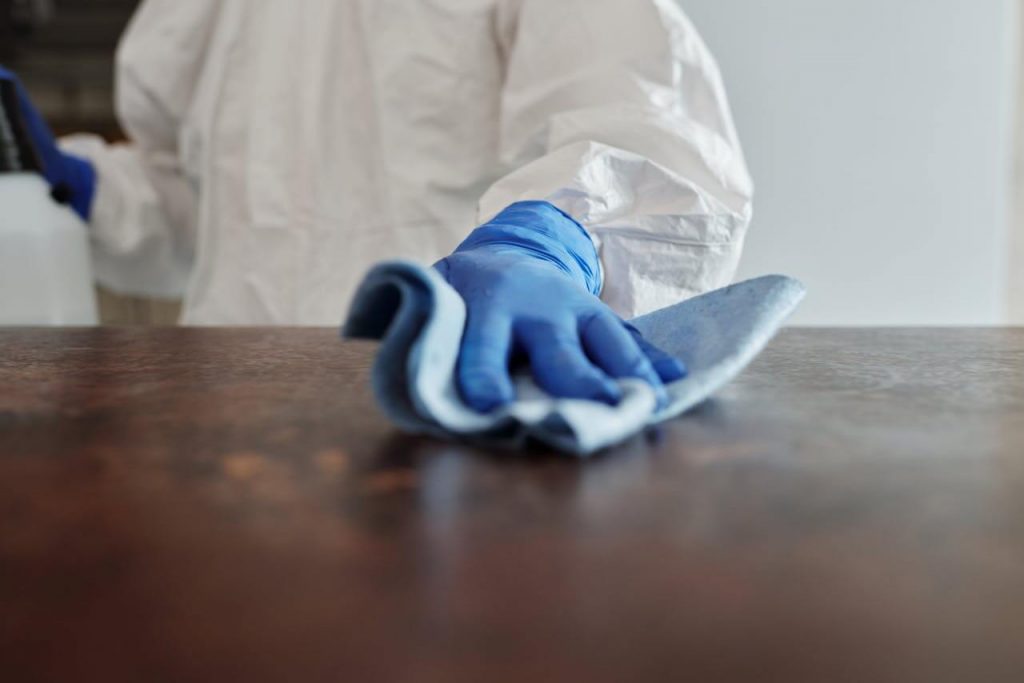In your search for a cleaning partner to work with for your business, you’ve probably encountered the terms “janitorial” and “commercial” cleaning services.
But what exactly makes them different and how do you know which is the right fit for your business?
We’ll delve into the differences between these two services. Make an informed decision for your company’s cleaning needs.
Table of Contents
ToggleWhat is Janitorial Cleaning?

Janitorial cleaning is slightly different in focus and scope. It typically covers more routine and maintenance-oriented tasks and is done on a daily or regular basis.
Janitorial cleaning services commonly include:
- Daily cleanings like emptying trash bins, vacuuming carpets, sweeping and mopping floors, and cleaning restrooms
- Surface cleaning like wiping down desks, counters, and other areas for dust and fingerprint removal
- Replenishing restroom stock like soap, paper towels, and toilet paper
- Basic floor care
Where commercial cleaning services may be project-based in some cases, janitorial cleaning is much more frequent. The cleaning staff often work during regular business hours as opposed to the off-peak hours for commercial cleaning.
Janitorial cleaning may not necessarily include deep cleaning, but it is cost-effective, especially for businesses on a budget and those who require only routine cleaning and maintenance tasks.
What is Commercial Cleaning?


Commercial cleaning refers to professional cleaning services tailored specifically for businesses and commercial properties. These services involve a broader range of tasks than those associated with janitorial cleaning, such as:
Deep cleaning for carpets, upholstery, and hard floors
- Specialized window washing and pressure washing
- Stripping, waxing, and buffing of floors
- Disinfection and thorough sanitation for high-touch surfaces
- Project-based cleaning like post-construction cleanups or event cleaning
Businesses often hire commercial cleaning companies on a scheduled, regular basis (e.e., weekly or monthly) or as needed for specific projects.
#1. Scope
Commercial cleaning goes beyond surface-level upkeep. It involves specialized tasks that require expertise and often specific equipment.
For example, cleaners might use high-powered pressure washers to clean a building’s exteriors. Industrial floor buffers and mops may also be used for large zones, while HEPA-filter vacuums are used to capture allergen and dust.
Commercial cleaning services are often custom-fit to meet the requirements of each industry. What would work for a healthcare facility may not necessarily work for an event company. Cleaning needs are different.
Meanwhile, janitorial cleaning is just focused on baseline cleanliness and maintenance. Standard vacuum cleaners, mops, and store-bought cleaning solutions are often the materials and equipment of choice.
#2. Frequency
Commercial cleaning schedules can vary, depending on what the business needs.
For example, a restaurant may need daily kitchen cleaning and sanitization, while an office building might require weekly floor care and window washing. Commercial cleaning plans are quite flexible in this regard.
Janitorial services are routine and more frequent. In most cases, janitorial staff are present daily or nightly to perform essential cleaning tasks. This ensures the workspace is presentable and hygienic for employees and visitors.
#3. Specialization
Commercial cleaners often have a higher level of specialization than janitorial cleaners. This is due to having so many types of commercial spaces and cleaning challenges.
These specialists may have certification for specific areas like carpet cleaning, floor care, window washing, or property management cleanup.
Janitorial staff on the other hand, typically require less specialization. They do not require training and certification like CCT (Carpet Cleaning Technician), for instance.
While they may be trained in general cleaning techniques, safety protocols, and the proper use of common cleaning supplies and equipment, they are slightly a step below commercial cleaners, in terms of specialization.
#4. Cost
Commercial cleaning costs vary depending on the facility type, scope, frequency, and special cleaning requests.
Factors like square footage, flooring type, number of restrooms, and need for equipment can all impact the overall cost.
Meanwhile, janitorial cleaning services are typically more affordable and the pricing model is more predictable.
It is usually based on the facility size and how often the cleaning is done. Some companies offer flat-rate pricing for specific services, while some may charge an hourly rate.
How Do I Know Which Cleaning Service Is Right For My Business?
Thankfully you don’t need to decide which type of cleaning to choose. When you engage with a company that provides both, they will assess your facility.
They’ll look into the size and layout, industry, budget, desired frequency, and other special requests as deemed fit. Some businesses go for a combination of janitorial and commercial cleaning.
It all depends on the level of hygiene, sanitation, and cleanliness you need.


